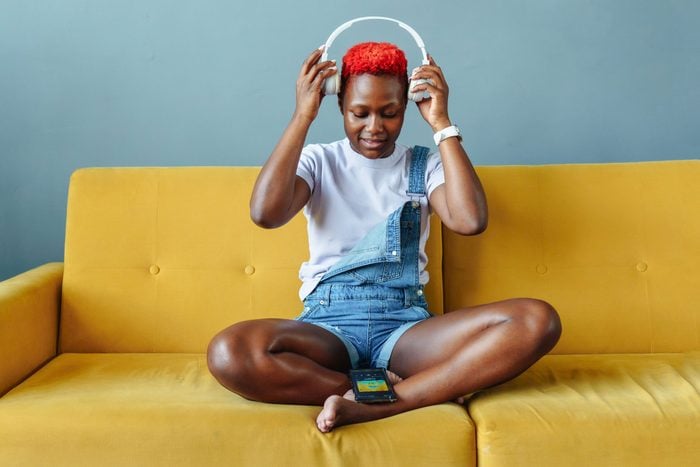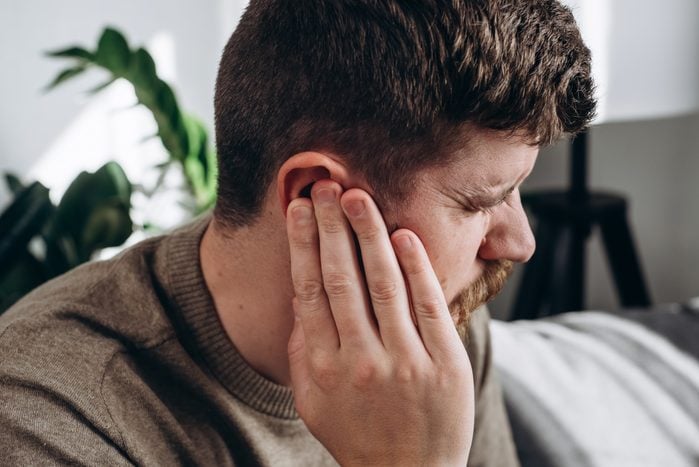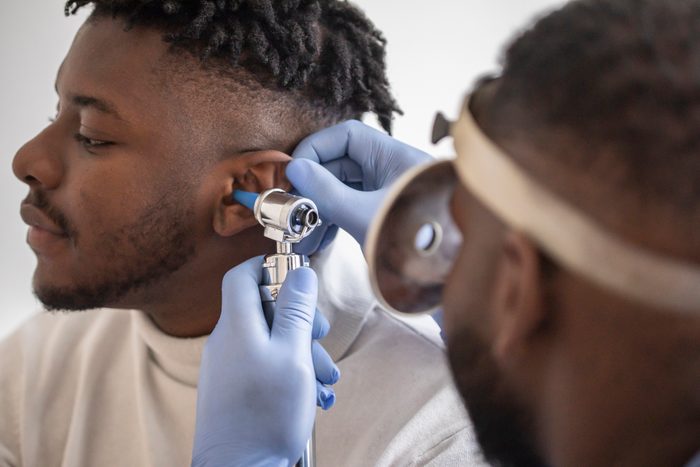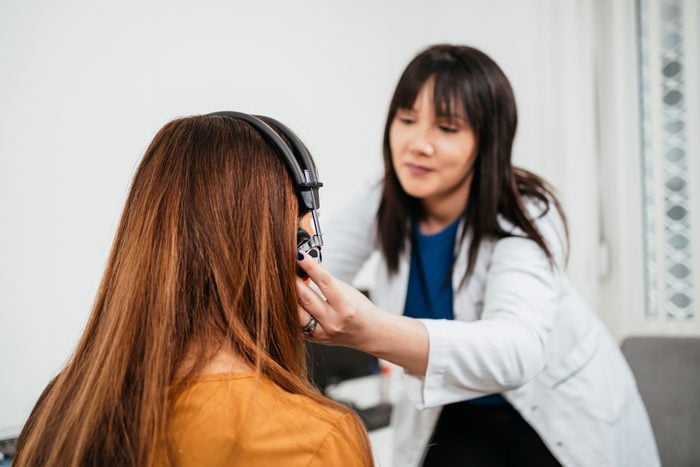
Over the din of brunch, are you noticing that you’re having a hard time hearing your friend who’s sitting right next to you? Or, not sure why you feel compelled to keep turning up your earbuds a little higher? Hearing loss has a way of creeping up, says audiologist Amy Sarow, AUD, CCC-A, in Lake Geneva, WI: “Hearing loss can come about gradually over time, and hearing is important for our social well-being, supports cognitive health and memory, and can even impact financial health,” she says.
Do Wireless Earbuds Harm Your Brain? A Brain Cancer Doctor Sounds Off
Hearing loss is also really common, as National Institutes of Health data suggest 25% of Americans aged 65, and 50% by age 75, experience hearing loss (while recent data have also suggested larger numbers of young people are experiencing hearing loss than in generations past, too). Many people lose their hearing over time, given the noise so many of us experience over the years: Concerts, fireworks, a profession working around loud machinery—even decades of using the hairdryer, when you think about it. But what’s the difference between minor inconveniences, and signs of disruptive hearing loss?
The Healthy @Reader’s Digest spoke with audiologist Sarow, along with Dr. Jed Grisel, MD, a board-certified otolaryngologist of Texoma ENT & Allergy in Wichita Falls, TX, about the benefits of getting your hearing tested at any age and the warning signs of hearing loss that should warrant a test from a professional if you experience them. “The rates of dementia, depression, and falls are all higher among people with untreated hearing loss. Additionally, the earlier a hearing loss is identified and treated, the more likely a person is to realize the benefits of treating the loss, leading to a higher quality of life and an increased sense of social connection.”
Hearing Aid Accessibility: A Mother’s 25-Year FDA Fight, and What Needs to Happen Next

Signs of hearing loss
1. Turning up the TV volume
Can’t hear the television at your usual listening volume? Sarow says this can be a first sign that your ability to hear is changing.
Noised-induced hearing loss can occur when you experience loud and long-lasting sounds consistently over a period of time. These sounds can damage the sensitive structures within a person’s inner ear due to damage in the inner ear cells, which can cause dulled or muffled hearing over time. At least 40 million adults (about 24% of the population) experience noise-induced hearing loss, and at least 10 million adults are under the age of 70.
While hearing loss is typically associated with aging, there are a number of other reasons a person can experience hearing loss even at a young age, such as excessive noise exposure, diabetes, stroke, hypertension, and more.
“Individuals with regular loud sound exposure should use hearing protection and monitor their hearing with regular hearing tests,” says Sarow. “Among young people in particular, noise-induced hearing loss is becoming more prevalent and is expected to affect as many as 1 billion people by the year 2050.”

2. Trouble understanding over background noise
If that crowded restaurant makes it tough to hear as your friend shares their life updates, this could be a sign of hearing loss. “Most people with hearing loss experience difficulty when background noise is present,” says Dr. Grisel. “Difficulty at restaurants, church, or other social situations is a common complaint.”
In this type of environment, the ears have trouble filtering out environmental sounds. The brain can actually process different types of sounds, and if you’re experiencing any level of hearing loss or even auditory processing disorder, this could result in having a hard time hearing what someone is saying to you when there’s background noise…even if the noise is light and not as abrasive.
A 103-Year-Old Nun’s 10 Daily Secrets for a Long, Healthy Life

3. Buzzing or ringing in the ears
Any ringing, buzzing, humming, or chirping sounds in the ear could be a sign of tinnitus—a disorder that causes you to hear sounds that aren’t coming from an external source. According to the National Institute of Health, 10% to 25% of adults tend to have tinnitus. If an individual experiences ringing in their ears for more than three months, it is likely that the condition is chronic.
Currently, tinnitus remedies are limited, but certain approaches can help with decreasing the intensity of the condition. Hearing aids can help, as well as behavioral therapies and certain types of medications.
Henry Winkler Reveals the Family Health Problem That Opened His Eyes

Why is it important to get your hearing tested?
If you’re experiencing any of these three signs, both Dr. Grisel and Sarow agree that it would be worth getting your hearing tested to see if you need to seek any type of treatment, given how vital hearing can be for your everyday life.
Says Sarow: “A hearing test is a quick and painless procedure that provides detailed information about your hearing acuity.”

When should you get your hearing tested?
Both Sarow and Dr. Grisel say that getting your hearing tested in your fifties is advised, given that the risk for hearing loss is higher as you get older. As greater risk comes with age and our lifestyles, it’s important to get your hearing tested early in case you need to start some kind of medication or therapy to take care of it.
“A good age to get your hearing checked is 55 or sooner if you have difficulty hearing in noisy situations or experience ringing in your ears (tinnitus),” says Dr. Grisel.
- Here’s How Much Water You Lose When You Sleep, According to an Expert
- 7 Best Foods to Prevent Dehydration, from Nutrition Experts
- 9 Canned Foods Nutritionists Actually Buy—and 2 They Don’t
- Have a Chronic Illness? Here’s a Gentle Script to Set Boundaries, from a Psychotherapist and Bestselling Author
- I Drank Energy Drinks Every Day for a Week—Here’s What Happened
